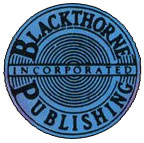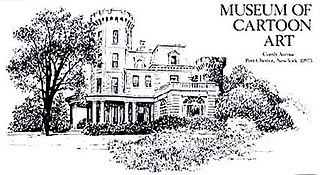Related Research Articles

Gemstone Publishing is an American company that publishes comic book price guides. The company was formed by Diamond Comic Distributors President and Chief Executive Officer Steve Geppi in 1994 when he bought Overstreet.

Dave Sim is a Canadian cartoonist and publisher, best known for his comic book Cerebus, his artistic experimentation, his advocacy of self-publishing and creators' rights, and his controversial political and philosophical beliefs.
The Jack Kirby Comics Industry Awards were a set of awards for achievement in comic books, presented from 1985-1987. Voted on by comic-book professionals, the Kirby awards were the first such awards since the Shazam Awards ceased in 1975. Sponsored by Amazing Heroes magazine, and managed by Amazing Heroes managing editor Dave Olbrich, the Kirby Awards were named after the pioneering writer and artist Jack Kirby.
First Comics was an American comic book publisher that was active from 1983 to 1991, known for titles like American Flagg!, Grimjack, Nexus, Badger, Dreadstar, and Jon Sable. Along with competitors like Pacific Comics and Eclipse Comics, First took early advantage of the growing direct market, attracting a number of writers and artists from DC and Marvel to produce creator-owned titles, which, as they were not subject to the Comics Code, were free to feature more mature content.
Diamond Comic Distributors, Inc. is an American comic book distributor serving retailers in North America and worldwide. They transport comic books and graphic novels, as well as other popular culture products such as toys, games, and apparel from comic book publishers or suppliers to retailers. Diamond distributes to the direct market in the United States and has exclusive distribution arrangements with several major U.S. comic book publishers, including Dark Horse Comics, Image Comics, and IDW Publishing.

Pacific Comics (PC) was an American comic book publisher that was active from 1981 to 1984. It was also a chain of comics shops and a distributor. It began at a San Diego, California, comic book shop owned by brothers Bill and Steve Schanes. Along with competitors like First Comics and Eclipse Comics, PC took early advantage of the growing direct market, attracting a number of writers and artists from DC and Marvel to produce creator-owned titles, which were not subject to the Comics Code, and thus were free to feature more mature content.

Harvey Comics was an American comic book publisher, founded in New York City by Alfred Harvey in 1941, after buying out the small publisher Brookwood Publications. His brothers, Robert B. and Leon Harvey, joined shortly after. The company soon got into licensed characters, which by the 1950s, became the bulk of their output. The artist Warren Kremer is closely associated with the publisher.

Blackthorne Publishing, Inc. was a comic book publisher that flourished from 1986–1989. They were notable for the Blackthorne 3-D Series, their reprint titles of classic comic strips like Dick Tracy, and their licensed products. Blackthorne achieved its greatest sales and financial success with their licensed 3-D comics adaptations of the California Raisins, but the financial loss suffered by the failure of their 3-D adaptation of Michael Jackson's film Moonwalker was a major contributor to the publisher's downfall.
In the United States, creator ownership in comics is an arrangement in which the comic book creator retains full ownership of the material, regardless of whether the work is self-published or published by a corporate publisher.

The direct market is the dominant distribution and retail network for American comic books. The concept of the direct market was created in the 1970s by Phil Seuling. The network currently consists of:
The Creator's Bill of Rights is a document drafted in November 1988 by a number of independent comic book artists, writers, and publishers, designed to protect their rights as creators and publishers and oppose exploitation by corporate work for hire practices and the power of distributors to dictate the means of distribution. Issues covered by the Bill included giving creators proper credit for their characters and stories, profit-sharing, distribution, fair contracts, licensing, and return of original artwork. The signing of the Bill spurred Cerebus creator and self-publisher Dave Sim and Teenage Mutant Ninja Turtles creators/self-publishers Kevin Eastman and Peter Laird to sell or continue selling collected volumes of their comics directly to readers via their periodic issues, rather than through direct market distributors selling the collections at comic book specialty shops. Comic book professionals that have commented on the Bill conclude that it had little or no impact on the comic book industry.

The Puma Blues was a comic book written by Stephen Murphy and drawn by Michael Zulli. It ran from June 1986 to early 1989, stretching over 23 regular issues and a single "half-issue" minicomic. In 2015 it was re-issued in a collected edition by Dover Comics & Graphic Novels with a new 40-page conclusion by Murphy and Zulli.

The National Cartoon Museum was an American museum dedicated to the collection, preservation and exhibition of cartoons, comic strips and animation. It was the brainchild of Mort Walker, creator of Beetle Bailey.

Stephen A. Geppi is an American comic book distributor, publisher and former comic store owner. Having established an early chain of comic shops in Baltimore in the mid-late 1970s, he is best known for his distributing business. Geppi founded Diamond Comic Distributors, the largest comic direct distribution service in 1982, and has served as the company's head to the present. Diamond Distribution became the successor to direct market pioneer Phil Seuling's distribution dream when Geppi took over New Media/Irjax's warehouses in 1982. He further bought out early-distributor Bud Plant in 1988, and main rival Capital City in 1996 to assume a near-monopoly on comics distribution, including exclusivity deals with the major comic book publishers.
Capital City Distribution was a Madison, Wisconsin-based comic book distributor which operated from 1980 to 1996 when they were acquired by rival Diamond Comic Distributors. Under the name Capital Comics, they also published comics from 1981 to 1984.
Bud Plant was a wholesale comics distributor active in the 1970s and 1980s during the growth of the direct market. He also published a selection of comics and zines during the same period. Starting in 1970 as a mail-order distributor specializing in underground comix, Plant absorbed some of his smaller rivals in the 1980s, and then sold his business to Diamond Comics Distributors in 1988. He still, as Bud Plant's Art Books, sells quality reprints and graphic novels.
New Media Distribution/Irjax Enterprises was a comic book distributor and publisher active from the mid-1970s to the mid-1980s. In 1978, the company's legal actions against the dominant distributor of the era, Sea Gate Distributors, widened the field for the direct market to expand. In 1982, when Irjax's distribution arm went out of business, its processing centers and warehouses formed the basis for Diamond Comics Distributors, the now-dominant comics distributor. The company's publishing arm, New Media, continued in the business until 1995. New Media mainly published periodicals for comics/fantasy/science fiction enthusiasts, including the long-running critical journal Comics Feature. Editors and writers with New Media included Carol Kalish, Richard Howell, Peter B. Gillis, Kurt Busiek, Don and Maggie Thompson, James Van Hise, Peter Sanderson, Max Allan Collins, Ron Goulart, Will Jacobs and Gerard Jones, Steve Perrin, and Roy Thomas.
Heroes World Distribution Co., originally named Superhero Enterprises, was an American comic book distributor. It was founded by Ivan Snyder, active from 1975 to 1997, during the growth and consolidation of the direct market. Heroes World was acquired by Marvel Comics in late 1994 to act as the publisher's sole distributor. This ill-fated move, combined with other marketplace factors of the time, resulted in the financial failure of many other comics distributors and retailers — and the near collapse of the entire North American comic book market.
Cerebus phonebooks are the paperback collections that Dave Sim has collected his comic book series Cerebus in since 1986. They have come to be known as "phonebooks" as their thickness and paper stock resemble that of phone books. The format had a large influence on alternative comics publishing and was key in the move from the periodical-centric publishing style that was once dominant.
David Scroggy is an American retailer, columnist, editor, and executive in the field of comic books. From 1993 to 2017, he was head of new product development at Dark Horse Comics.
References
- ↑ Sanford, Jay Allen. "Two Men and their Comic Books," San Diego Reader blog (August 19, 2004).
- ↑ "Newswatch: Pacific Suspends Operations," The Comics Journal #93 (September 1984), pp. 8-10.
- ↑ "Diamond Announces Changes to Executive Management Team". www.diamondcomics.com. Retrieved 2019-05-02.
- 1 2 Letters pages, The Puma Blues #15 (February 1988).
- ↑ "Diamond Distributors Clashes With Aardvark-Vanaheim," The Comics Journal #122 (March 1988), p. 7.
- ↑ "Diamond Backs Down," The Comics Journal #121 (April 1988), 7.
- ↑ "A-V, Diamond Clash Again," The Comics Journal #122 (June 1988), pp. 20-21.
- ↑ "Diamond Loosens Up," The Comics Journal #122 (June 1988), pp. 20.
- ↑ Text of the Creators' Bill of Rights at ScottMcCloud.com